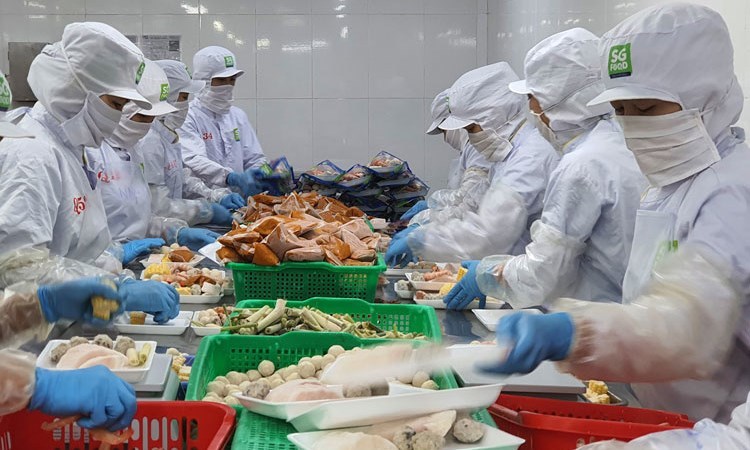In late June, the first consignments of Vietnam’s litchis hit the shelves of 250 conenience stores, supermarkets and Aeon Style shops in Japan. It is estimated that 200 tons of fresh litchis were exported to Japan by air and by sea in the 2020 litchi crop.

Japan is now the third largest import-export market of Vietnam. The General Department of Customs (GDC) reported that in the first five months of 2020, the two-way trade turnover between Vietnam and Japan reached $15.6 billion, an increase of 2.2 percent compared with the same period last year. Of this, Vietnam’s exports to Japan brought turnover of $7.83 billion and the country imported $7.77 billion from Japan.
Nguyen Huu Tin, director of the HCM City Investment and Trade Promotion Center (ITPC), said while Vietnam has controlled Covid-19, the pandemic globally is still unpredictable and the economy is facing big challenges.
However, the ‘new normal’ status is an opportunity for enterprises to improve and find new ways to exist and develop. Now is time for businesses to upgrade technology and equipment to make products at lower costs and become more competitive.
| Exporting products to the Japanese market through the retail channel is considered a band-aid solution for now. In 2019, Vietnam exported $381 million worth of products through Aeon retail chain alone, of which 75 percent were garments. |
Exporting products to the Japanese market through the retail channel is considered a band-aid solution for now. In 2019, Vietnam exported $381 million worth of products through Aeon retail chain alone, of which 75 percent were garments.
At present, Vietnam’s catfish products are favored by Japanese consumers. The total catfish exports to Japan through Aeon reached 1,200 tons in 2019.
According to deputy director of the Domestic Market Department Le Thi Viet Nga, Aeon committed to increase the purchase of Vietnamese goods to sell at its supermarket chain in Vietnam and the region. The group strives to export $500 million worth of Vietnam’s products in 2020 and $1 billion in 2025.
In an effort to boost export of Vietnam’s products through supermarket chains, ITPC has been joining forces with Japanese importers to apply solutions to promote trade and help the business community develop supply chains and expand the partnership.
However, businesses understand that while Japan promises great opportunities, it has always been a very choosy market.
Experts said that it is difficult to bring Vietnam’s goods to Japanese supermarkets in Vietnam, but it is even more difficult for Vietnam’s goods to enter supermarkets in Japan.
According to Nguyen Thi Duy Xuan from Aeon Vietnam, Vietnam’s businesses have to satisfy six requirements to be able to bring their products to Aeon, including traceability.
Kim Chi

Vietnam receives positive view in global exports as EVFTA takes effect: report
Vietnam is expected to continue growing its share of global exports despite decline amid the resurgence in the COVID-19 pandemic after three months of no local transmissions, according to an HSBC report.

Plywood exports face trade defence risks in US, RoK
Vietnam’s plywood exports, despite good growth amid the COVID-19 pandemic, are facing allegations of dumping and evading trade remedies in two largest markets namely the Republic of Korea (RoK) and the US.
 As demand is very weak now in the world market, Vietnam needs to respect every new opportunity to boost exports.
As demand is very weak now in the world market, Vietnam needs to respect every new opportunity to boost exports.